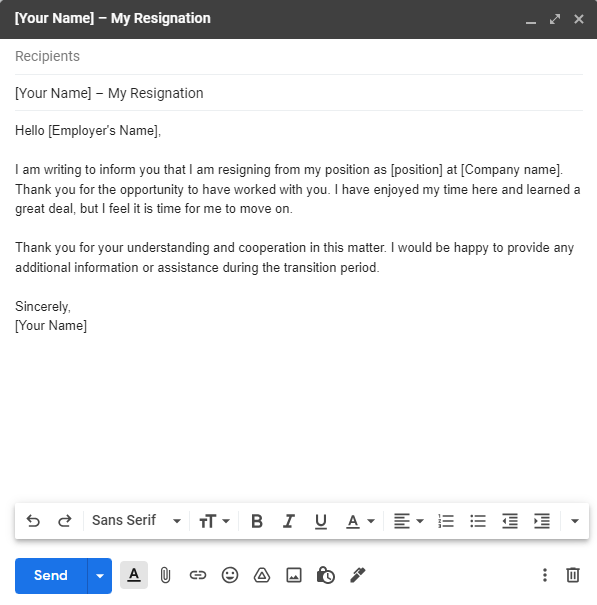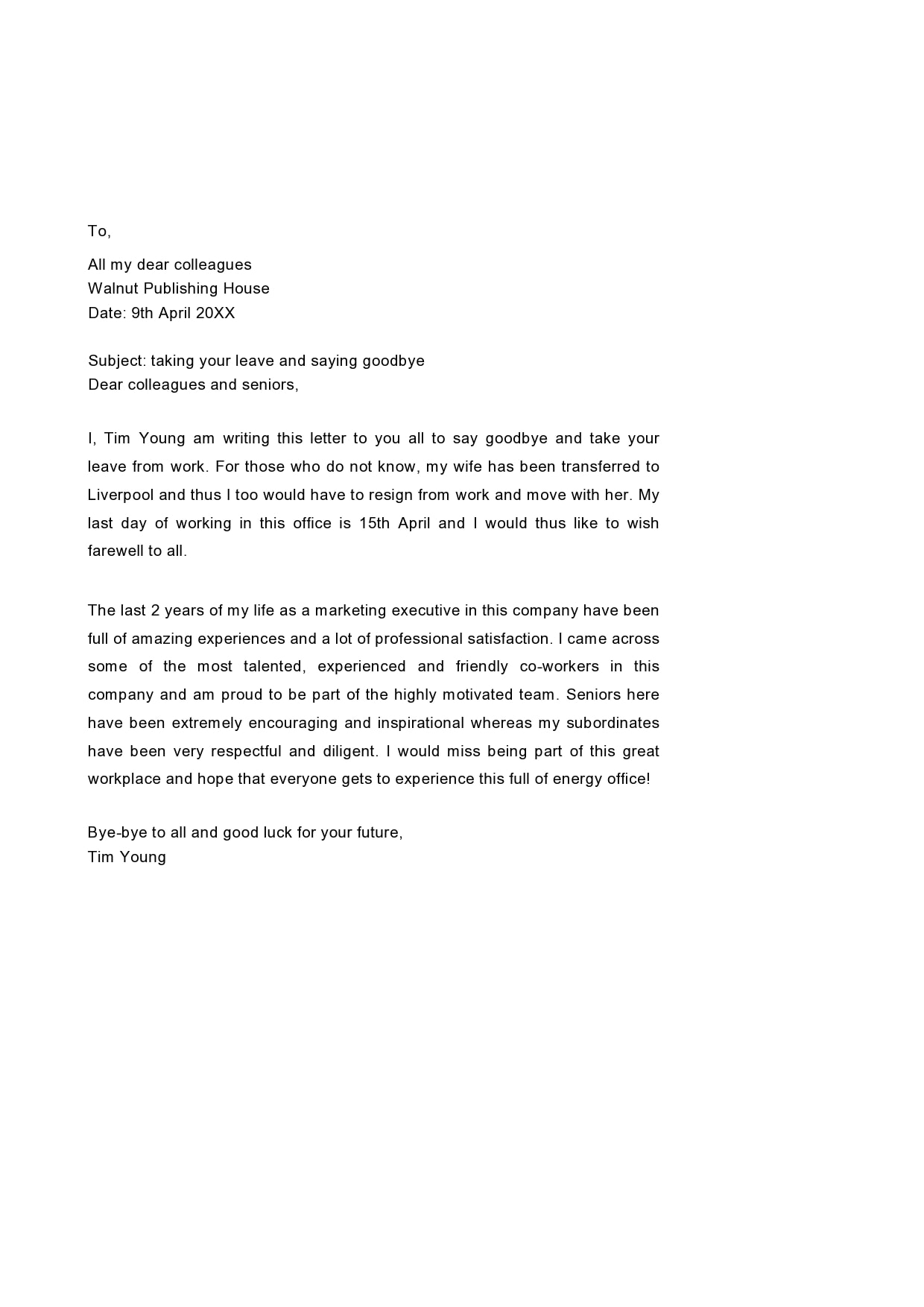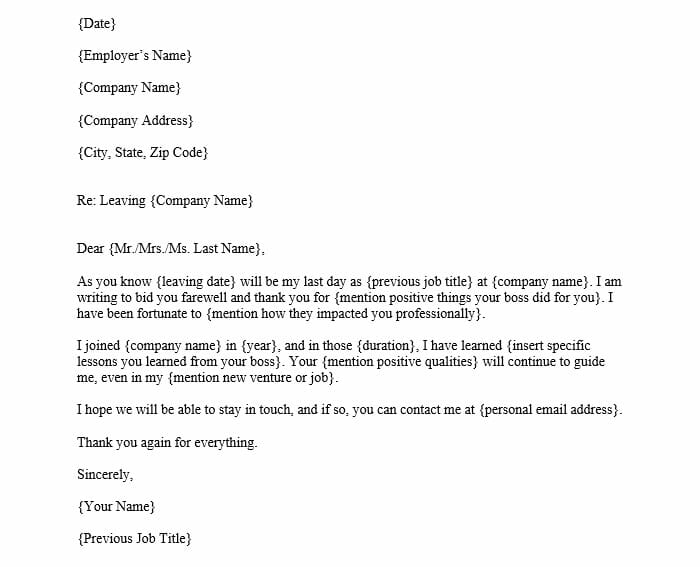How To Tell Your Manager You're Leaving

Navigating the professional landscape often involves making pivotal decisions, and few are as significant as informing your manager of your departure from a company. The process, fraught with potential awkwardness, requires careful consideration and strategic planning to ensure a smooth transition and maintain positive professional relationships.
This article provides a framework for effectively communicating your resignation, covering essential steps and considerations to help employees navigate this critical conversation with confidence. Understanding the appropriate timing, method, and content of your resignation notice is crucial for both your professional reputation and the ongoing operations of your team.
Timing is Everything
Determining when to inform your manager is paramount. Standard practice involves providing at least two weeks' notice, though the specific timeframe can vary based on your role, contract, and company policy. Review your employment agreement or employee handbook to confirm any specific requirements or guidelines regarding resignation notice periods.
Consider your current projects and responsibilities. Aim to deliver your resignation at a time that minimizes disruption to ongoing work. If possible, offer to assist with the transition by documenting your processes, training colleagues, or helping to find your replacement.
Choosing the Right Method
While an email may seem convenient, a face-to-face conversation is generally considered the most professional approach. Schedule a private meeting with your manager to deliver the news in person. This allows for a more personal and direct communication, fostering a sense of respect and transparency.
If a face-to-face meeting is impossible due to remote work arrangements or other logistical constraints, a video call is the next best option. Avoid delivering such significant news solely through email or text, as it can be perceived as impersonal and disrespectful.
Crafting Your Message
Your resignation message should be clear, concise, and professional. Begin by stating your intention to resign from your position. Include your last day of employment and express gratitude for the opportunities and experiences you gained during your time at the company.
Avoid being overly negative or critical of the company or your colleagues. Even if you have grievances, it is best to keep the conversation focused on your future goals and aspirations. This maintains a positive tone and avoids burning bridges.
Prepare a formal resignation letter to provide as a written record of your decision. This letter should reiterate the key points discussed in your conversation and serve as official documentation for human resources.
What to Say (and What Not to Say)
Be prepared to answer questions about your reasons for leaving, but you are not obligated to disclose specific details about your new job or compensation. You can simply state that you are pursuing a new opportunity that aligns with your long-term career goals.
Focus on expressing gratitude for the skills you’ve developed and the experiences you’ve gained. Offer your assistance with the transition process, demonstrating your commitment to leaving the company in good standing.
Avoid divulging confidential information about the company or your colleagues. Maintain professionalism and integrity throughout the entire process.
Post-Resignation Protocol
Once you've informed your manager, cooperate fully with the transition process. Document your work, train your replacement, and complete any assigned tasks to the best of your ability. A smooth transition benefits everyone involved.
Maintain a positive attitude and continue to contribute to the team until your last day. Your final impression is just as important as your first.
Before leaving, ensure you understand the company's policy regarding final paychecks, benefits continuation (such as COBRA), and the return of company property. Complete any necessary paperwork and address any outstanding issues.
Protecting Your Professional Reputation
Resigning from a job is a sensitive process that can significantly impact your professional reputation. By handling your resignation with grace and professionalism, you can maintain positive relationships with your former colleagues and manager, opening doors for future opportunities.
According to a Gallup poll, employees who feel valued and respected during their tenure are more likely to speak positively about their former employers, even after they have moved on. Leaving on good terms can lead to valuable references and networking opportunities down the line.
The Long-Term Impact
Your actions during your resignation period reflect your character and professionalism. Treat the situation with respect, communicate clearly, and offer your assistance to ensure a smooth transition. This approach will not only benefit your former employer but will also enhance your own reputation and career prospects. Remember first impressions matter, but so does the last impression you leave.
:max_bytes(150000):strip_icc()/2060865a-a00dd037c25547df8a83c13bb57cd695.jpg)












:max_bytes(150000):strip_icc()/how-to-tell-your-boss-you-re-quitting-your-job-2063035_FINAL-5b88037cc9e77c002cc6f46c.png)




